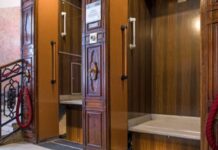Two nations, or rather: 4 regions of two different nations, share a single territory and a unique population. Let’s see where it is and how far ” State reason” can go
The village with DOUBLE NATIONALITY
# Exclave or enclave?
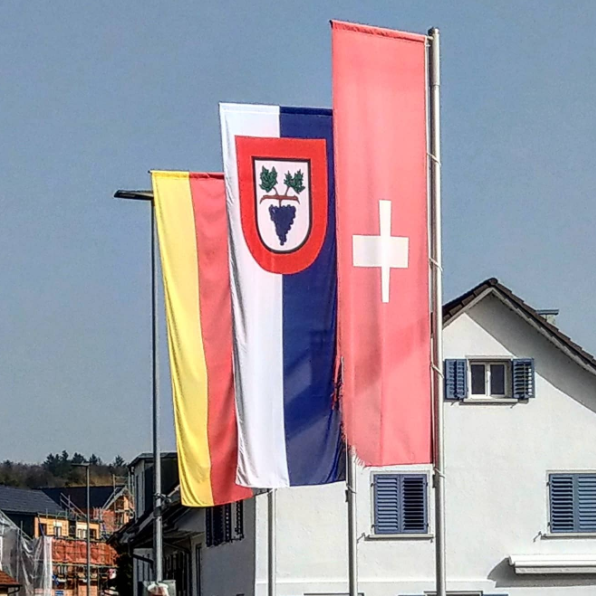
A 680-meter-wide strip of German land enters Swiss territory, creating unique conditions in Büsingen am Hochrhein that make this village of 1,500 inhabitants a German enclave in Switzerland… or a Swiss exclave in Germany.
Büsingen is located on the banks of the Rhine River. Bureaucratically it belongs to the Baden-Württemberg Lander, hence Germany. The borders of three Swiss cantons extend all the way to the Rhine at this point, so Büsingen also borders with the cantons of Zurich, Thurgau, and Schaffhausen.
The “state interests” manifested in these little more than 7 km², make Büsingen a very special border town. The case should be studied, to erase all the wrongs and horrors that history has committed, and finally listen to the population’ s wish.
# German wedding, Swiss funeral
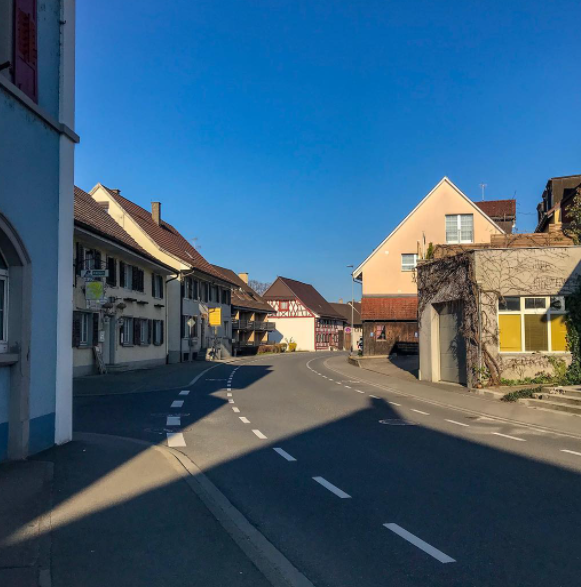
Everyday life in Büsingen is a complicated affair. Its citizens are bound by the German laws, but due to a series of historical events, the area is subject to Swiss economic law.
Swiss law applies to agriculture, drug crimes, funerals, and catering.
German law, on the other hand, applies to marriages, building construction, theft, and money laundering crimes.
The official currency is the Euro, but, Swiss Francs circulate in Büsingen. The double standard creates problems for the citizens’ quality of life: the cost of living is comparable to that of Switzerland, while salaries, currency fluctuations and taxation are fully comparable to those of the Euro zone. The doubt begins to become really Hamletian, do not you find?
# The double zip code and the special car plate
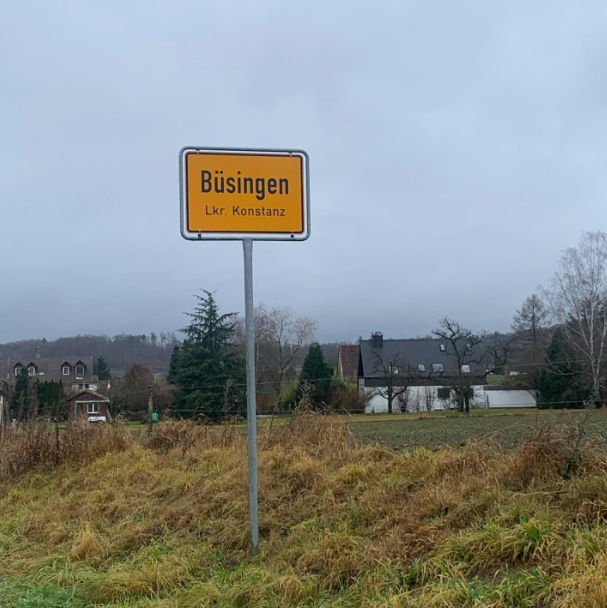
At first glance nothing seems to distinguish this village from the rest of the surrounding settlements. It seems to be in any of the Swiss villages in the canton of Zurich, or Schaffhausen. Few details immediately alert us that we are not in a place like any other.
D-78266 and CH-8238 stand at the top of the post office, which shows Deutsche Post logo, telling us that there are two zip codes in Büsingen, one for each Country. It’s a good thing the three Swiss cantons were content to be represented by just 8238, otherwise who knows what a headache the mailman would have.
A dotted line on a terrace sketches the border between Switzerland and Germany and, above all, eye-catching yellow signs inside the municipal area warn vehicles and pedestrians that they are about to cross the border, to or from the European Union.
Speaking of cars: the citizens of Büsingen have a special car plate, “BÜS-A”, which alerts border agents that German citizens are on their way to Germany to do their shopping.
# Abduction and ransom
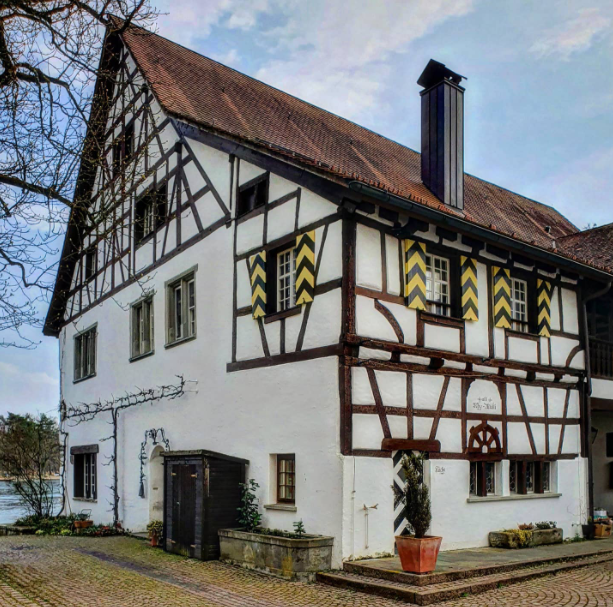
The situation in Büsingen am Hochrhein is the result of the complicated history of Europe in the Prussian and Austro-Hungarian period, which was amplified by an abduction and ransom.
In 1695 Eberhard Im Thurn, feudal lord of Schaffhausen, was kidnapped during a conflict with Anterior Austria. With his capture and loss of freedom, he also lost his rights to rule over “his own” territory.
The ransom demanded to free Eberhard was huge, but at a cost of tens of thousands of Guilders, Schaffhausen later regained the rights to the territories. Except for Büsingen, which Austria kept for itself in perpetual memory “for the bother caused”.
The historical vicissitudes of the wars in Europe, which have caused the disappearance of Prussia and the downsizing of the Austrian Empire, have left intact those borders drawn “for bother”, which continues to this day.
# What do Büsingen’s citizens want?
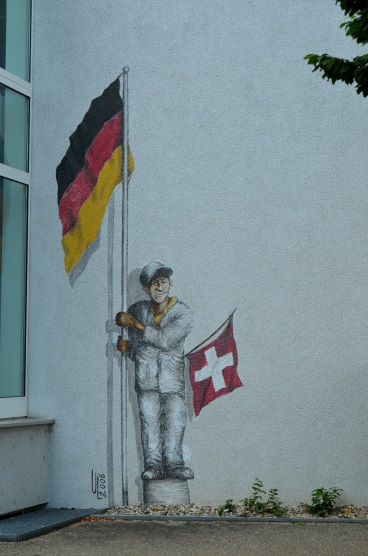
In 1918 the citizens declared in a referendum their desire to join Switzerland.
Many diplomatic talks, have failed this objective and were interrupted in 1956. The only mouse that the diplomatic mountain has brought forth is an agreement, that came into force in 1967, a kind of garbage that transformed Büsingen into a German enclave of Schaffhausen and, at the same time, into a cantonal exclave of Baden-Württemberg.
Can you imagine what life might have been like in these parts during the pandemic, when borders between states were closed and each nation adopted its own rules in an attempt to fight off a respiratory virus?
Imagine the odyssey of German citizens, prevented to travel from Germany to Germany to get groceries, because since 1695 no one has ever normalized that border with a real treaty of international common sense?
In 2020 Büsingen am Hochrhein found itself in a situation close to the ridiculous. Only the Mayor’s intervention, together with the citizens’ protests, could put an end to the paradox. But with even more ridiculous rules, such as the one that required Büsingen’s citizens to cross their own streets “in turn”.
In 2022 the time has come to honestly analyze these extreme situations, the ones that are seriously bringing to light all the paradoxes of bureaucracy, to finally listen to the citizens and satisfy their wishes
Continue reading: 7 THINGS that Italy ENVIES THE CITIZENS OF MILAN
LAURA LIONTI




